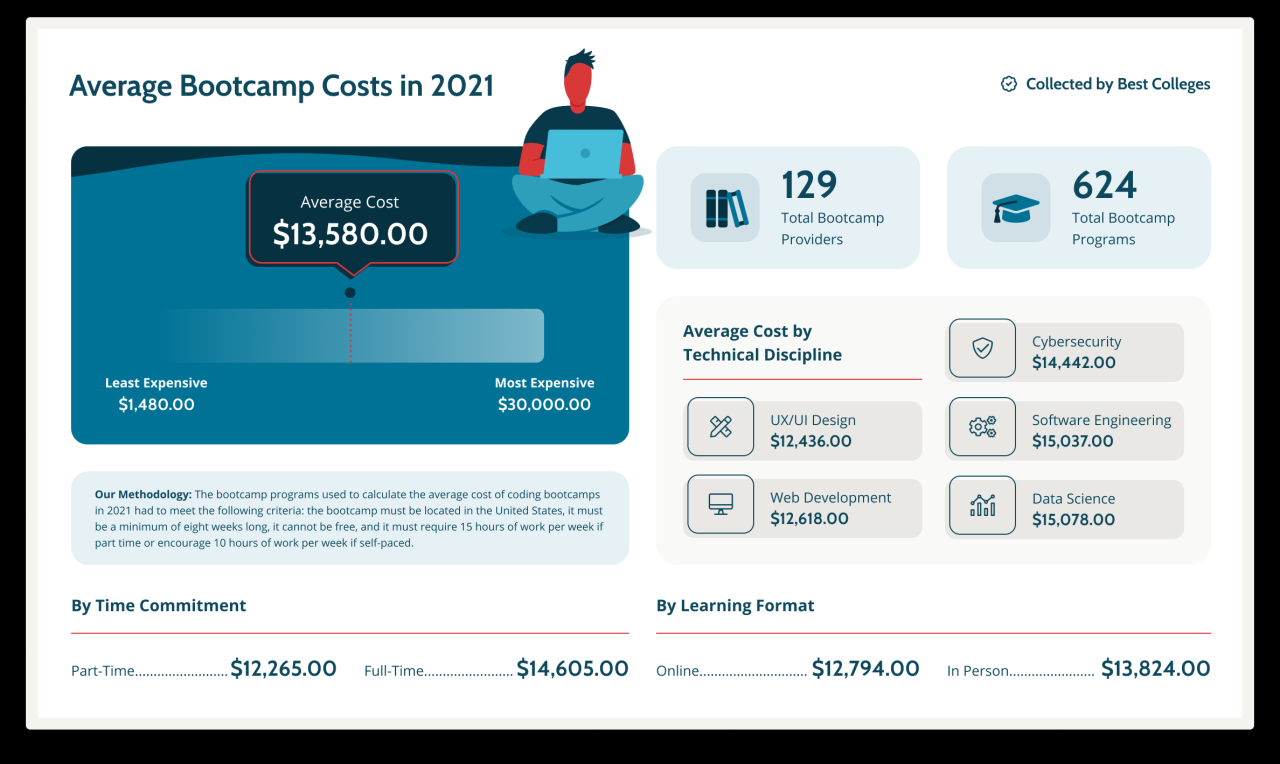GI Bill Eligibility for Coding Bootcamps

The GI Bill, officially known as the Montgomery GI Bill or the Post-9/11 GI Bill, offers veterans and eligible service members funding for education and training. While traditionally associated with four-year colleges and universities, the GI Bill can also be used to cover the cost of coding bootcamps, provided certain criteria are met. Understanding these eligibility requirements is crucial for veterans seeking to transition into the tech industry through intensive, short-term training.
GI Bill Eligibility Criteria for Coding Bootcamps
Eligibility hinges on several key factors. Firstly, the bootcamp must be approved by the Department of Veterans Affairs (VA). This approval process involves verifying the program’s length, curriculum, and accreditation (or equivalent). The program length is a significant factor; while the GI Bill covers longer programs, it often provides a prorated amount for shorter intensive courses like coding bootcamps. The VA also assesses the bootcamp’s educational objectives to ensure they align with recognized career pathways. Finally, while full accreditation isn’t always mandatory, the VA often favors programs with recognized accreditations or other forms of quality assurance. Meeting these criteria ensures veterans receive the maximum benefit from their GI Bill entitlement.
Types of GI Bill Benefits and Their Application to Coding Bootcamps
The Post-9/11 GI Bill and the Montgomery GI Bill offer different benefits packages. The Post-9/11 GI Bill typically covers tuition and fees, a monthly housing allowance (MHA), and a book stipend. The amount of coverage depends on the program’s cost and the veteran’s eligibility. The MHA is particularly relevant for bootcamps, as it helps offset living expenses during the intensive training period. The Montgomery GI Bill operates similarly, though the benefit amounts may differ. Veterans should carefully review their specific GI Bill benefits and understand how they translate to the cost of their chosen coding bootcamp.
GI Bill vs. Traditional Four-Year Degree: Benefits Comparison
Using the GI Bill for a coding bootcamp offers several advantages over a traditional four-year college degree. Bootcamps are significantly shorter, often lasting only a few months, leading to faster career entry. The focused curriculum directly addresses in-demand tech skills, maximizing the return on investment of GI Bill funds. The cost is generally lower than a four-year degree, leaving more of the GI Bill benefits available for other needs. However, a four-year degree provides a broader education and potentially higher earning potential in the long term. The optimal choice depends on individual career goals, financial circumstances, and learning style.
Examples of VA-Approved Coding Bootcamps
While the VA’s list of approved programs is dynamic, several well-known coding bootcamps frequently receive approval. It’s crucial to verify a bootcamp’s VA approval status directly before enrollment. Examples (Note: This is not an exhaustive list, and approval status can change; always check directly with the VA): Thinkful, Flatiron School, App Academy, General Assembly. These institutions often have established processes for assisting veterans with GI Bill enrollment.
Coding Bootcamp Cost and GI Bill Coverage Comparison
| Bootcamp Name | Cost | GI Bill Coverage (Estimate) | Accreditation Status |
|---|---|---|---|
| Example Bootcamp A | $15,000 | Varies by GI Bill type and individual eligibility; could be partial or full coverage | Accredited by [Accreditation Body, if applicable] |
| Example Bootcamp B | $12,000 | Varies by GI Bill type and individual eligibility; could be partial or full coverage | Accredited by [Accreditation Body, if applicable] |
| Example Bootcamp C | $18,000 | Varies by GI Bill type and individual eligibility; could be partial or full coverage | Accredited by [Accreditation Body, if applicable] |
| Example Bootcamp D | $10,000 | Varies by GI Bill type and individual eligibility; could be partial or full coverage | Accredited by [Accreditation Body, if applicable] |
Funding and Payment Processes

Securing funding for your coding bootcamp through the GI Bill involves a relatively straightforward process, but understanding the steps and potential challenges is crucial for a smooth transition into your new career path. This section details the application process, payment methods, required documentation, and potential issues you might encounter.
Does the gi bill pay for coding bootcamp – The process of using your GI Bill benefits to fund a coding bootcamp is generally similar to using them for a traditional college or university, but with some key differences. The key is to ensure your chosen bootcamp is approved by the VA, and to meticulously follow the application and verification procedures.
Application Process for GI Bill Benefits
Applying your GI Bill benefits to a coding bootcamp typically involves these steps: 1) Choose a VA-approved bootcamp: Confirm your chosen bootcamp participates in the Yellow Ribbon Program or is otherwise approved for GI Bill benefits. 2) Submit your application: Complete the application process through the VA’s eBenefits portal. This includes providing your military service information and choosing your bootcamp. 3) Receive certification: Your bootcamp will certify your enrollment to the VA, confirming your eligibility for benefits. 4) Monitor your payments: Track your payment status through the eBenefits portal. The VA will send payments directly to your bootcamp.
Payment Methods and Schedules, Does the gi bill pay for coding bootcamp
The VA typically pays coding bootcamps directly on a monthly basis, or in some cases, on a per-course or per-unit basis, depending on the bootcamp’s structure and agreement with the VA. The payment schedule is determined by the length of your program and the VA’s disbursement process. Bootcamps may have their own internal payment schedules for tuition and fees, but the VA’s payment is separate and directly to the institution. Some bootcamps might offer payment plans, but these are separate from the VA’s payment schedule.
Required Documentation
To successfully apply and receive GI Bill funds, you’ll need to provide several documents, including your Certificate of Eligibility (COE), your DD Form 214 (Certificate of Release or Discharge from Active Duty), and possibly other forms depending on your specific circumstances. Your bootcamp will likely provide a detailed list of required documents and assist you in the process. It is essential to ensure all documents are accurate and complete to avoid delays.
Potential Delays and Complications
Delays in the payment process can occur due to several factors, such as incomplete documentation, errors in your application, or processing delays within the VA system. If you experience delays, contact your bootcamp’s VA representative and the VA directly to inquire about the status of your payments. Keeping meticulous records of all communication and documentation is crucial in resolving any issues.
Common Student Questions Regarding GI Bill Payments
Students frequently ask about various aspects of GI Bill payments for bootcamps. These include questions concerning the maximum amount of funding available, the timing of payments, the handling of unexpected expenses, and the process for appealing payment decisions. Understanding the specific terms of your GI Bill benefits and your bootcamp’s payment policies will help to address these concerns proactively.
Alternatives and Considerations: Does The Gi Bill Pay For Coding Bootcamp

Choosing a coding bootcamp using your GI Bill requires careful consideration of various factors beyond just the immediate training. A thorough cost-benefit analysis, understanding potential risks and rewards, and exploring alternative funding options are crucial for making an informed decision that aligns with your long-term financial goals.
This section will examine alternative educational paths, the financial implications of utilizing your GI Bill benefits for a coding bootcamp, and other funding sources available to veterans. We’ll also analyze the potential risks and rewards associated with this educational choice.
Cost-Benefit Analysis of GI Bill Use for Coding Bootcamps versus Other Options
Comparing a coding bootcamp to other educational routes, such as a traditional four-year computer science degree or online courses, necessitates a comprehensive cost-benefit analysis. Factors to consider include the total cost of the program (including tuition, living expenses, and lost income), the length of the program, the potential job placement rate and salary upon completion, and the long-term earning potential of the chosen career path. For instance, a four-year degree might have higher upfront costs but potentially lead to higher earning potential in the long run. A coding bootcamp, while shorter and less expensive, may offer a quicker path to employment but with potentially lower initial salary. The GI Bill’s contribution to the cost significantly impacts this analysis, effectively reducing the out-of-pocket expense for veterans. This reduction makes the bootcamp a more attractive option for some, depending on their individual circumstances and financial situation.
Risks and Rewards Associated with Using the GI Bill for a Coding Bootcamp
Utilizing GI Bill benefits for a coding bootcamp carries both risks and rewards. A key reward is the potential for rapid career advancement in a high-demand field. The relatively short duration of bootcamps allows veterans to enter the workforce quickly, maximizing the return on their investment of time and GI Bill benefits. However, risks exist. The intense, fast-paced nature of bootcamps might not suit all learning styles. Furthermore, the job market for software developers can be competitive, and successful career outcomes are not guaranteed, even with a bootcamp certification. Another risk is the potential for choosing a low-quality bootcamp that does not provide adequate job placement support or a robust curriculum. Careful research and due diligence are essential to mitigate these risks.
Alternative Funding Options for Ineligible Veterans
For veterans ineligible for GI Bill benefits, several alternative funding options exist for coding bootcamps. These include personal savings, loans (federal or private student loans, personal loans), employer-sponsored tuition assistance programs, and scholarships specifically designed for veterans or individuals pursuing tech careers. Some bootcamps offer financing plans or income share agreements, where tuition is paid back as a percentage of future earnings. Veterans should thoroughly investigate all available options and compare interest rates, repayment terms, and eligibility requirements before committing to any funding source. Many non-profit organizations and veteran-focused groups also offer grants and scholarships that could help defray the cost of training.
Long-Term Financial Implications of Using the GI Bill for a Coding Bootcamp
The long-term financial implications of using the GI Bill for a coding bootcamp are largely dependent on post-graduation employment outcomes. A successful career transition into a well-paying software development role can quickly offset the cost of the bootcamp and provide a strong financial foundation. However, if employment prospects are less favorable, the investment of GI Bill benefits may not yield the expected return. It is crucial to consider the potential opportunity cost of using the GI Bill for a bootcamp versus saving the benefits for other educational pursuits or financial needs in the future. The decision should be based on a comprehensive assessment of individual circumstances, career goals, and risk tolerance.


Tim Redaksi